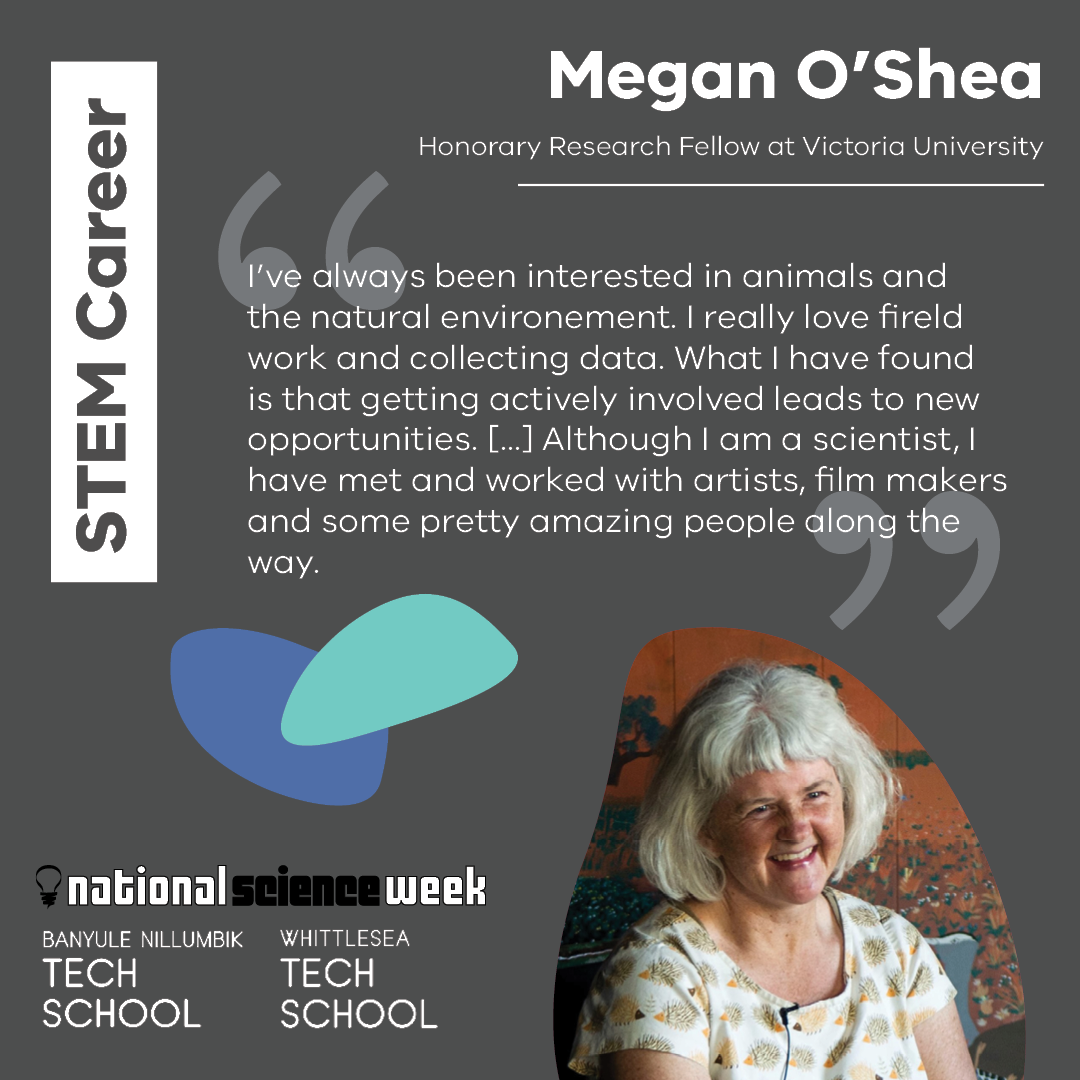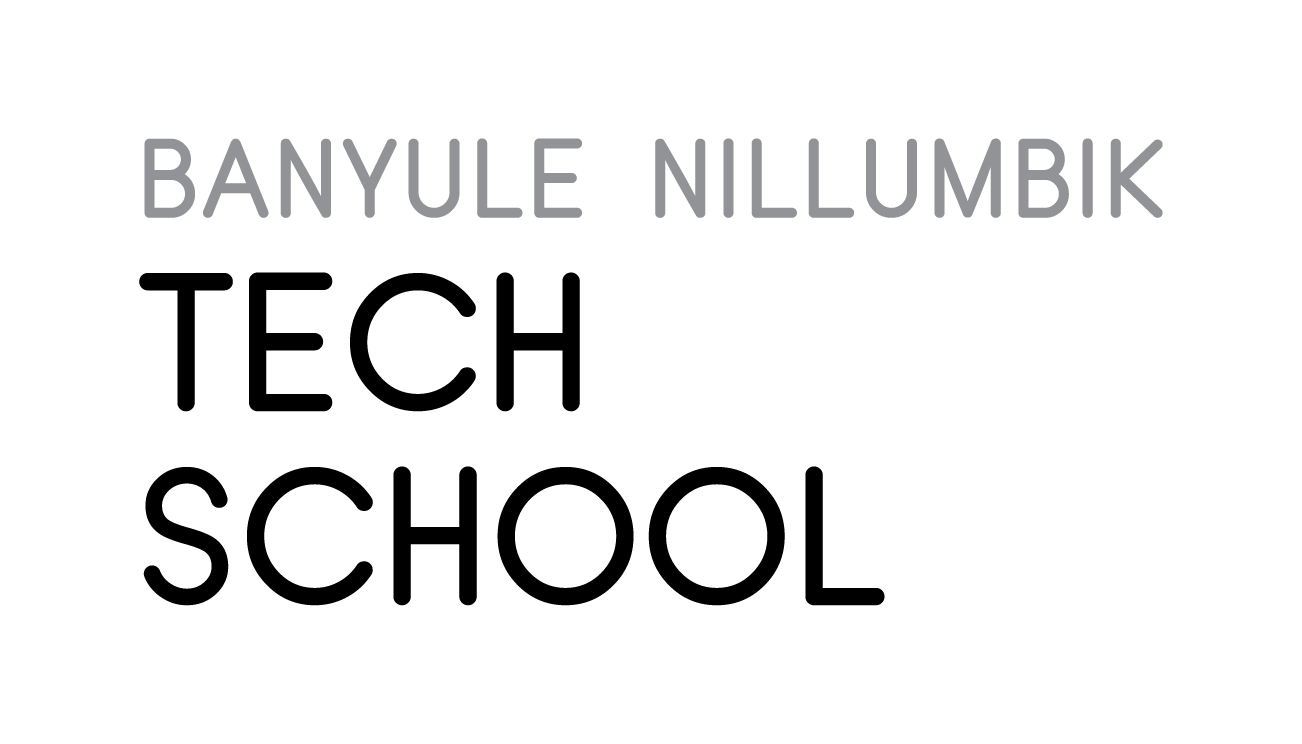

Interview with Megan O’Shea, Victoria University
Science-related career paths
The Banyule Nillumbik and Whittlesea Tech Schools are celebrating science-related career paths during National Science Week 2020. The campaign aims to showcase science by celebrating the people that are at the centre! National Science Week 2020 runs from August 15-23. For more information visit the National Science Week website.
When developing our programs, we reach out to industry partners to help us build case studies that improve student’s empathy towards a topic. In our most recent Design Challenge, Human-Animal Interactions, we spoke with Megan from Victoria University. Megan is currently working as an honorary research fellow in ecology for Victoria University. To read more on what she shared with us, check out the interview below.
What did you study at school?
Biology, Chemistry, Physics, Maths, English. With the benefit of hindsight, this combination of subjects was challenging and today only maths and English would be required for entry into a similar Uni course to the one I studied. I would recommend including at least one subject (in addition to English) that was outside the maths/science field.
What did you do when you left school?
I studied a Bachelor of Science (Environmental Management) at Deakin University.
What do you currently do for work?
I am an Honorary Research Fellow at the Institute for Sustainable Industries and Liveable Cities at Victoria University. Most of my work focuses on the ecology of Striped Legless Lizards, recovery of threatened plants, grassland restoration and community engagement with local native grasslands.


What did you study at school?
Biology, Chemistry, Physics, Maths, English. With the benefit of hindsight, this combination of subjects was challenging and today only maths and English would be required for entry into a similar Uni course to the one I studied. I would recommend including at least one subject (in addition to English) that was outside the maths/science field.
What did you do when you left school?
I studied a Bachelor of Science (Environmental Management) at Deakin University.
What do you currently do for work?
I am an Honorary Research Fellow at the Institute for Sustainable Industries and Liveable Cities at Victoria University. Most of my work focuses on the ecology of Striped Legless Lizards, recovery of threatened plants, grassland restoration and community engagement with local native grasslands.
What inspired you to choose this career path?
I was always interested in animals and combined this with my interest in the local natural environment. When I started my course at Uni, I imagined that I would get a job as a park ranger, however I was also interested in research. I commenced an honours research project on the Striped Legless Lizard and found that I really loved field work and collecting/managing data. I jumped into my honours year and this led to a PhD and ongoing work opportunities.
Have there been any unexpected implications of your work?
What I have found is that getting actively involved leads to new opportunities. I have had periods of permanent work but I am currently self-employed with lots of individual projects that provide me with more than sufficient employment. Although I am a scientist, I have met and worked with artists, film makers and some pretty amazing people along the way.
What are you most proud of achieving within this role?
Protection of a 30ha grassland reserve for the conservation of the Striped Legless Lizard.
What would you say are the key skills needed for your role?
Good time management and systems of organisation
Good networking skills
Ability to understand, follow and comply with procedures, policy and legislation
Good data collection and management skills
Ability to communicate in a way that is relevant to the target audience and the material to be delivered
What advice would you give to young people who have an interest in this field?
Take your opportunities because they always lead somewhere. Be a good networker by getting actively involved, whether that is through work or through volunteering. There are lots of volunteer organisations that have a only few of their members doing most of the work – get involved and put your hand up to take on some of the organisational tasks (e.g. you can volunteer to attend a bird census day but you are more likely to be remembered if you get involved in organising the bird census day – perhaps you could design a bird ID chart for the event or develop up a data record sheet or just organise the biscuits for morning tea). Be creative when thinking of solutions to problems – there is usually a way around an obstacle, even though it may not be immediately obvious.

